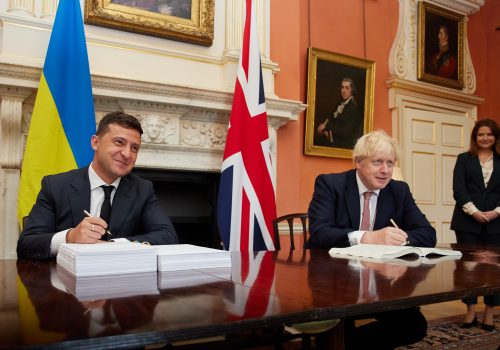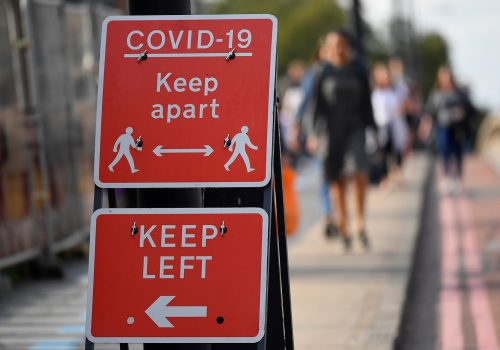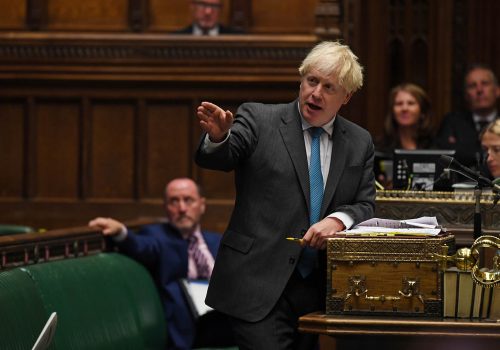FAST THINKING: Will a Brexit deal be home for Christmas?
JUST IN
The European Union’s chief Brexit negotiator said yesterday that a trade deal could come before Christmas. That would be quite the gift for British Prime Minister Boris Johnson, who faces the prospect of his country “crashing out” of its old trading arrangements with the EU. With a new variant of the coronavirus raging through the United Kingdom and Europe poised to play a key role in Joe Biden’s efforts to revamp US foreign policy, there’s a lot more hanging in the balance right now than European trade. Ben Judah, who has been tracking the talks from the start, has the rundown on where they stand, where they’re going, and why they matter.
TODAY’S EXPERT REACTION COURTESY OF
How it came down to fish
- There are positive signs that Britain and the European Union are on the verge of a deal, Ben tells us, though all the usual cautionary caveats apply. Having apparently resolved their main sticking point on a way to manage a “level playing field” for post-Brexit trade, the two sides seem to be confronting one final hang-up over fishing access in UK waters—something “politically important for both Johnson and French President Emmanuel Macron,” he notes.
Why Britain—and its prime minister—need this
- No deal, Ben explains, would mean the UK exiting the EU in January “with no trading rules agreed beyond bare-bones World Trade Organization terms. This would have an immediate and incredibly disruptive impact on everything from haulage to air travel and law-enforcement cooperation.”
- In just the last week, he adds, the coronavirus pandemic has given Britain a preview of what the resulting isolation might be like. “One of the main nightmares associated with ‘no deal’ appears to have come early with the new so-called mutant strain of COVID,” Ben says. Several European countries banned flights from the UK, causing chaos, while France closed its land border at the Channel Tunnel, snarling traffic.
- “Johnson’s Conservative Party is ahead in the polls, with Labour seemingly little able to shape the narrative around Brexit,” but a botched Brexit could still damage Johnson politically, Ben says. “The main looming threat on the horizon for Johnson’s premiership appears to be in Scotland, where seventeen polls in a row have shown a majority support for independence. Fear that a painful ‘no deal’ could send that even higher has been one of the main factors tempering Johnson’s inner circle about the risks [of his approach to Brexit]. He wants to be remembered as the leader who left the EU, not lost Scotland.”
Why the Biden administration should be paying attention
- But this is much bigger than Britain, Ben adds: “The UK getting a deal doesn’t just matter for British business. It also matters for Washington. Britain is set to be center stage throughout 2021 when it comes to international diplomacy.” In the coming year, the United Kingdom will host the G-7 summit and the next UN Climate Change Conference—both priorities for the US president-elect. Plus, Ben adds, “the UK is crucial to the success not only of any efforts to renew NATO, but also to meet the China challenge.”
- Biden needs European allies on board with those efforts too. The confusion and acrimony that would follow a failure to reach a deal, Ben notes, “are not exactly the stuff a renewed transatlantic alliance is made of.”
- So is there anything the incoming administration can do to influence events at this juncture? “There’s a limit,” Ben says. “But a tweet from the president-elect or his national security advisor saying it would look favorably on both sides compromising would not be a bad idea. If Biden’s serious about wanting a renewed democratic West to take on the challenges of Russia and China, sending a signal that he wants to avoid a ‘No Deal Brexit’ between two crucial allies is low-hanging fruit.”
Further reading
Mon, Oct 12, 2020
UK and Ukraine sign historic post-Brexit free trade deal
UkraineAlert By
The jury is still out on the economic impact of Brexit, but Ukraine emerged in early October as an unlikely early beneficiary of Britain’s EU exit by signing a landmark partnership agreement including free trade.
Thu, Oct 15, 2020
COVID-19 and British unity
New Atlanticist By John M. Roberts
The coronavirus crisis is straining British unity as officials in the North of England, Scotland, Wales, and Northern Ireland clash with Boris Johnson's government over lockdowns and economic support measures.
Fri, Sep 18, 2020
Johnson faces a COVID lockdown and trade lockout
New Atlanticist By John M. Roberts
British Prime Minister Boris Johnson has found himself in an extraordinary crisis, as a second wave of COVID-19 lockdowns is interacting with what would normally be considered a totally separate matter, the future of trade deals with the European Union and the United States and Britain’s reputation as a nation committed to upholding international law.
Image: REUTERS/Francois Lenoir


